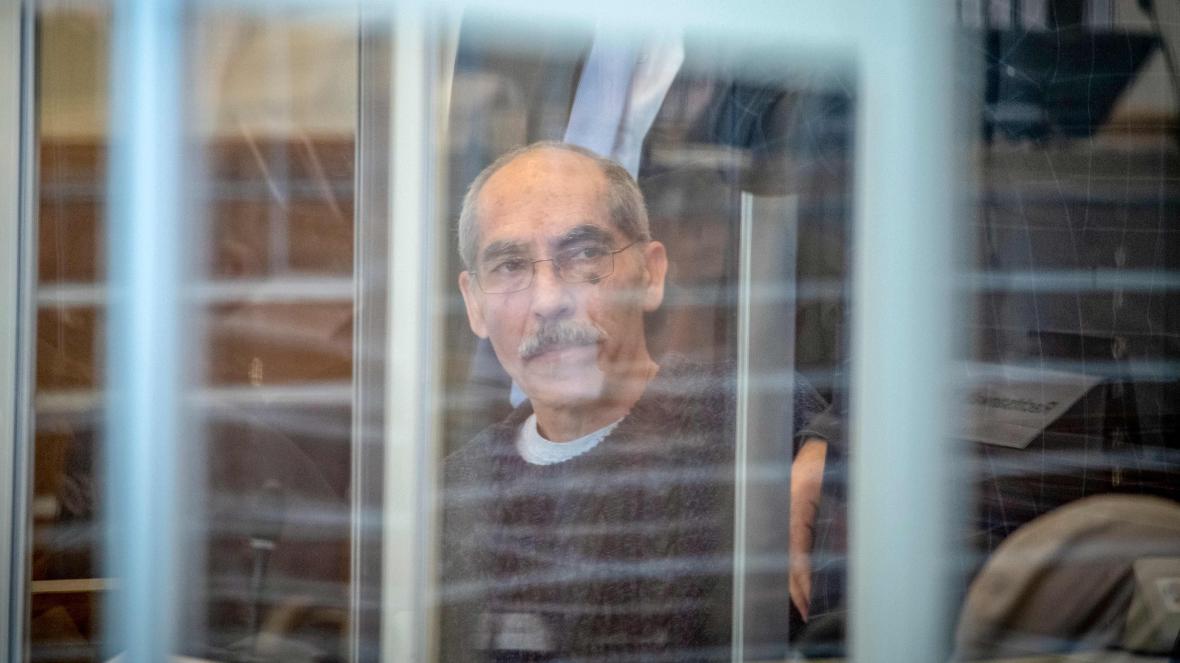Apr. 23, 2020, will mark a milestone in the march of justice in Syria, the region and perhaps the world. On this day, in the German city of Koblenz, the trial began of two members of the Assad regime’s intelligence apparatus: Anwar Raslan and Eyad Ghareeb. Raslan was a commander and head of the intelligence division in Branch 251 of the General Intelligence Directorate, and now stands accused of carrying out more than 4,000 cases of torture towards detainees and killing 58 detainees under torture, in addition to at least two cases of rape and physical violence between April 2011 and September 2012. As for Ghareeb, he is an officer accused of participating in the torture of 30 detinees during October and November 2011.
Neither the case itself nor the hearings would have begun without the painstaking efforts of a number of lawyers and activists in the Syrian Center for Legal Studies and Research, the Caesar Files Group and the Syrian Center for Media and Freedom of Expression, with major support from the European Center for Constitutional and Human Rights (ECCHR) and with help from heroic prosecutors and witnesses. If it had not been for their courage to testify, the trial would not have happened.
It is true that those being tried today in Germany are just two people from Bashar al-Assad’s security apparatus, which is still ravaging the bodies of Syrian women and men–especially the tens of thousands of detainees who remain held in its dungeons and prison cells. And it is true also that justice will remain incomplete so long as there are criminals walking freely and continuing their crimes outside the court walls. Still, this trial remains an important step despite the campaign of skepticism, belittling and criticism that it only targets members of the opposition who defected from the Assad regime.
This is not a trial of individuals for their attitudes and affiliations, but rather a trial of their criminal actions and the crimes they committed in their capacity while parts of Bashar al-Assad’s security apparatus which has carried out atrocities against tens of thousands of Syrians. The same principle applies to the trial of Islam Alloush, who was part of an organization that carried out crimes against thousands of Syrians, and the same will apply to all those from any party accused of serious criminal acts against Syrians.
The importance of this step and the extent of its impact on the course of a solution, and the future of justice, in Syria is that it opened a door that will only be closed with the trial of Bashar al-Assad’s security apparatus for the crimes it committed against Syrians. In addition, this trial will, in time, put great pressure on all criminals, as it will reduce the safe havens that they consider resorting to. It will also confirm that there is no escaping accountability and punishment no matter how much time has passed, as simply including the names of these people as accused perpatrators of torture, war crimes, genocide and crimes against humanity will mean they have no role in the future of Syria. Above all else, this trial will give an important glimmer of hope to the victims and their loved ones that they shouldn’t lose hope in achieving justice so long as there are Syrians persevering in their efforts to prosecute and try criminals, and to leave the door of justice open.
Wolfgang Kaleck [a German lawyer and General Secretary for ECCHR] said, “The trial of the al-Khatib Branch [Branch 251] in the Higher Regional Court of Koblenz in Germany is of great importance worldwide…It is a prelude to a systematic investigation of the Assad government’s crimes, especially systemic torture. It is a start–no more and no less…The criminal investigation is first and foremost important for the survivors involved. For the first time, you can speak to the public about what happened. It is also for the relatives of those who met their deaths in detention, as well as for those who remain in detention.
Kaleck concluded: “A comprehensive picture emerges of the crimes committed by the Syrian government. Other entities can access these results for other operations–for example, in the Arab world or on the international level. Contributing to the crime and conviction of the accused must be put into the context of the entire criminal apparatus in Syria. Anwar is no small fish–the accusation against is complicity in more than 4,000 cases of torture.”
Although many Syrians are convinced that justice will not be achieved in foreign courts far away from Syria, it is my hope that the launch of the train of justice in Germany will constitute a response to the calls of victims, their families and human rights organizations. It will help them achieve justice that is absent on the Syrian stage and open the door for other trials of all criminals who have committed crimes against the Syrian people–foremost of whom is Bashar al-Assad’s security apparatus. It also paves the way for [these trials] to be conducted on Syrian soil when conditions are ready.
Finally, it is necessary to praise the importance of the joint legal work between the Syrian and European lawyers who contributed to preparing for this case and all the cases that were raised in Europe. I call on deepening and strengthening [this cooperation] because of its effectiveness in activating the course of justice and preventing impunity not only in Syria but also in the world.
Mr. Wolfgang Kaleck is the General Secretary of ECCHR and is the supporter of all cases brought up in Europe against those responsible for torture in the Syrian intelligence branches.
This article was translated and edited by The Syrian Observer. The Syrian Observer has not verified the content of this story. Responsibility for the information and views set out in this article lies entirely with the author.


